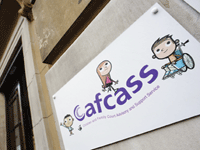
Cafcass faces questions over its future after an alliance of 18 organisations called on the government to consider alternative models.
The family court body is also under review by the House of Commons public accounts committee.
The Interdisciplinary Alliance for Children, which includes guardians’ body Nagalro, the Association of Lawyers for Children and the British Association of Social Workers, issued a joint statement setting out “grave concerns” about Cafcass’s services.
Questioning whether the Cafcass model is either the most effective in terms of outcomes or the most cost-effective use of available resources, the alliance urged the government to act quickly because “matters are now too serious to await the outcome of the forthcoming Family Justice Review”.
Practitioners were concerned they would breach their statutory duties and professional code of ethics by complying with Cafcass’s organisational directives, such as the duty guardian scheme under which there is no guarantee a child will have a single named guardian, according to the statemen.
Alison Paddle, former chair of Nagalro, said the government should be “seriously questioning whether Cafcass is fit for purpose”.
The calls follow criticisms from family magistrates and lawyers that a National Audit Office report last week examining Cafcass’s response to the post-Baby P referrals spike was “not harsh enough”.
Cafcass’s response to rising care applications would have been more effective if better progress had been made in tackling existing organisational problems, the NAO said last week.
Margaret Wilson, chair of the family courts committee at the Magistrates’ Association, said she was surprised the NAO not more critical: “We’ve seen no improvement in Cafcass and are deeply concerned about its operating procedures, particularly the watching brief category of guardian.”
The public accounts committee inquiry starts in September. Committee chair Margaret Hodge said the NAO report raised “serious concerns” about the way in which Cafcass met the needs of vulnerable children.
A Cafcass spokesperson said that, contrary to the alliance’s claims, performance had improved significantly at a time of record care applications.
“Unallocated care cases now stand at 143, compared to seven times this number a year ago. Our practitioners are working on over 2,700 more care cases – so we have absorbed over 30% more work, and at the same time have managed to dramatically reduce our unallocated care case work,” the spokesperson said.


 Bournemouth, Christchurch and Poole
Bournemouth, Christchurch and Poole  Hampshire County Council
Hampshire County Council  Lincolnshire County Council
Lincolnshire County Council  Norfolk County Council
Norfolk County Council  Northamptonshire Children’s Trust
Northamptonshire Children’s Trust  South Gloucestershire Council
South Gloucestershire Council  Wiltshire Council
Wiltshire Council  Wokingham Borough Council
Wokingham Borough Council  Children and young people with SEND are ‘valued and prioritised’ in Wiltshire, find inspectors
Children and young people with SEND are ‘valued and prioritised’ in Wiltshire, find inspectors  How specialist refugee teams benefit young people and social workers
How specialist refugee teams benefit young people and social workers  Podcast: returning to social work after becoming a first-time parent
Podcast: returning to social work after becoming a first-time parent  Podcast: would you work for an inadequate-rated service?
Podcast: would you work for an inadequate-rated service?  Family help: one local authority’s experience of the model
Family help: one local authority’s experience of the model  Workforce Insights – showcasing a selection of the sector’s top recruiters
Workforce Insights – showcasing a selection of the sector’s top recruiters 

 Facebook
Facebook X
X LinkedIn
LinkedIn Instagram
Instagram
Comments are closed.